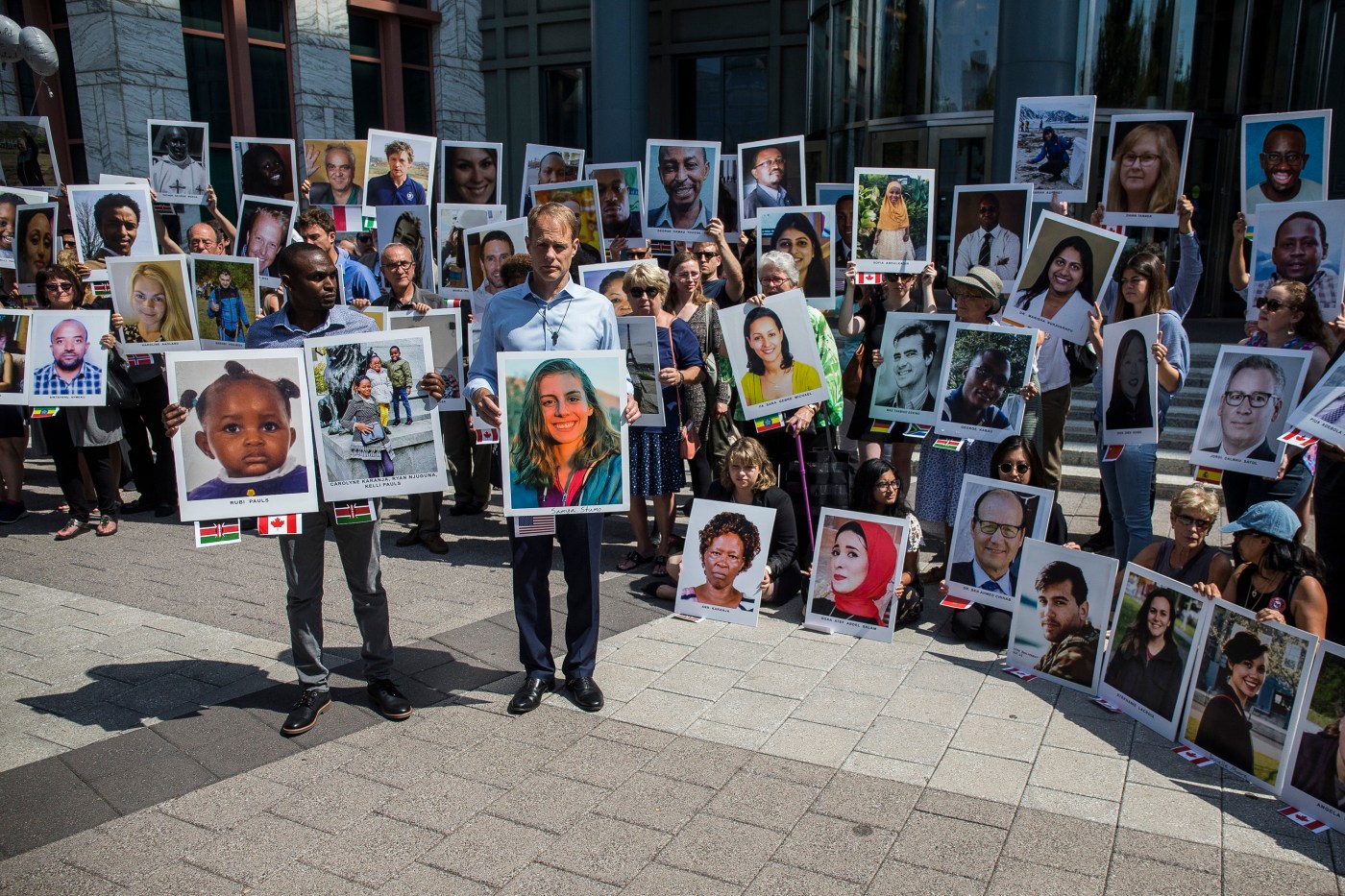
737 Max crash families meet with DOJ as it weighs next move against Boeing
Families of the victims of the two deadly Boeing 737 Max crashes five years ago met with the head of the fraud division at the U.S. Justice Department and urged further legal action against Boeing.
The Friday meeting in Washington, D.C., followed the department’s ruling this month that Boeing had violated the terms of a 2021 deal with the federal prosecutors to avoid criminal charges stemming from the crashes.
Boeing has 30 days to appeal that ruling. The DOJ will announce its next course of action against the company at a court hearing July 7 in Texas.
The families have long been frustrated at the terms of that 2021 deal, which they see as letting Boeing off the hook for hiding engineering flaws that caused the crashes and killed 346 people.
On Friday, they told the DOJ lawyers they now want prosecutions of Boeing as a company and of individual executives, including then-CEO Dennis Muilenburg.
In a news conference outside the Justice Department afterward, Michael Stumo, who lost his daughter Samya in the crash in Ethiopia, said Muilenburg “should get prison time.”
Bob Clifford, one of the lead lawyers representing the families, said the Justice Department lawyers in the meeting listened but were “tight-lipped about their intentions.”
Mark Lindquist, a local lawyer who represents some victim family members and attended the meeting virtually from Seattle, said the DOJ seemed to indicate prosecutions of individuals are unlikely when they outlined obstacles to doing so, chiefly the five-year statute of limitations for most federal crimes.
Under the terms of the 2021 deal, called a deferred prosecution agreement, or DPA, Boeing admitted fraud and was fined $244 million. But Justice agreed to drop the criminal fraud charge provided Boeing boosted its compliance with safety standards and oversight during a three-year probationary period.
The fraud charge related narrowly to the conduct of two Boeing technical pilots accused of concealing from the Federal Aviation Administration and airlines the significance of a new flight control system on the Max during the jet’s certification. Flaws in that new flight control system led directly to the crashes that killed 346 people.
Subsequently, the chief technical pilot Mark Forkner was prosecuted but acquitted.
The DPA expired on Jan. 7, two days after the midair blowout of a door-sized fuselage panel on an Alaska Airlines 737 Max. The blistering public reaction to that incident led regulators to sharply tighten oversight of Boeing. That seems to have played into DOJ’s decision that Boeing had not complied with the terms of the DPA.
The families of the victims have derided the DPA since it was announced as a sweetheart deal that let Boeing away with a minimal fine. The wording of the agreement explicitly exonerated senior management, saying they had not facilitated the fraud.
With that agreement thrown out, Justice has several options.
Because Boeing waived the statute of limitations for the company in the 2021 agreement, the DOJ could move ahead and prosecute the company, either on the fraud charge or new charges.
At the news conference Friday, Chris Moore, who lost his daughter Danielle in the Ethiopian crash, said it wasn’t just the narrow actions of the two technical pilots but the entire certification of the Max’s flawed flight control system that was fraudulent.
“That’s the criminal act,” Moore said. “There’s so much information out there that the Department of Justice has; they can prosecute Boeing.”
“We need to have that day in court. We need to have the truth. We need to have transparency,” he added. “That is the only way that justice will prevail.”
As evidence that Boeing had never come close to complying with the 2021 agreement, Stumo mentioned how management forced out whistleblowers who spoke up and cited the litany of recent quality lapses at Boeing, including the Alaska Airlines incident and the revelation in early May that mechanics in South Carolina had falsified manufacturing records on the 787.
“That’s the Boeing culture,” Stumo said. “The Justice Department has a chance now to fix it, to prosecute Boeing, to go for a heavy sentence, to go for terms of probation that really, truly force Boeing to clean house.”
If the DOJ does decide to prosecute, Boeing could avoid a trial by pleading guilty and taking whatever punishment a judge imposed.
That would thwart the hope of the families for a full public airing of all the missteps that led to the accidents, though a sentencing hearing would still allow a painful recounting of Boeing’s actions and their impact.
Another option for the DOJ is simply to extend the current DPA by a year or so, effectively putting Boeing on probation for a longer period.
What Lindquist said he considers most likely is for the DOJ instead to negotiate a new plea deal with Boeing that imposes stiffer penalties and conditions than were imposed in 2021.
He said the DOJ lawyers mentioned in Friday’s meeting the possibility of one new condition they are considering: appointment of an independent monitor to oversee Boeing’s compliance with the conditions.
“If they do a plea agreement with Boeing, which I think is a realistic possibility, it cannot be a repeat of the sweetheart deal in the first DPA,” Lindquist said.


